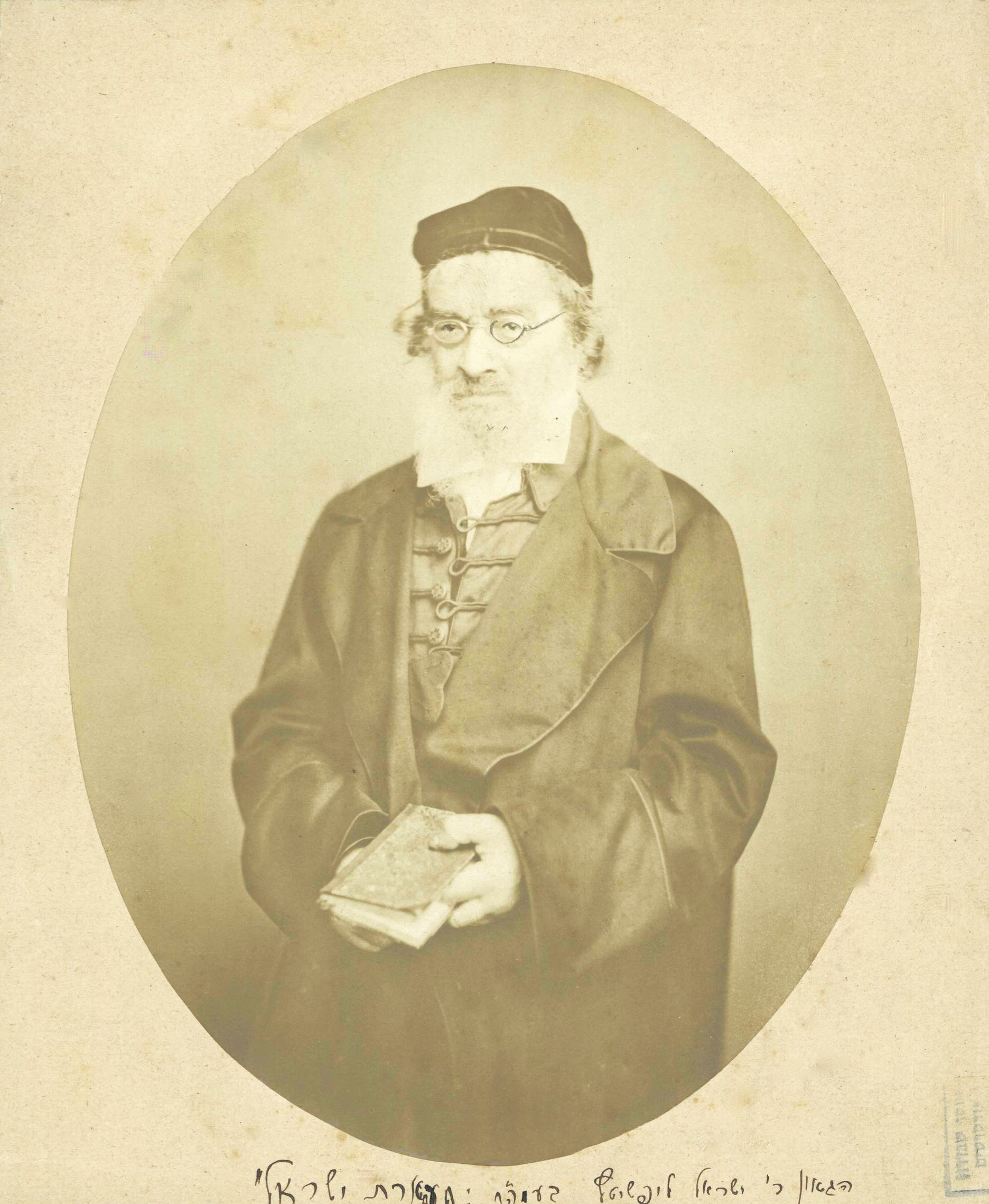Israel Lipschitz on:
[Wikipedia]
[Google]
[Amazon]
 Yisrael Lifschitz ( he, ישראל ליפשיץ ; 1782–1860) was a leading 19th-century Ashkenazi
Yisrael Lifschitz ( he, ישראל ליפשיץ ; 1782–1860) was a leading 19th-century Ashkenazi
Jewish Encyclopedia
German Orthodox rabbis 19th-century German rabbis 1782 births 1860 deaths {{Germany-rabbi-stub
 Yisrael Lifschitz ( he, ישראל ליפשיץ ; 1782–1860) was a leading 19th-century Ashkenazi
Yisrael Lifschitz ( he, ישראל ליפשיץ ; 1782–1860) was a leading 19th-century Ashkenazi rabbi
A rabbi () is a spiritual leader or religious teacher in Judaism. One becomes a rabbi by being ordained by another rabbi – known as ''semikha'' – following a course of study of Jewish history and texts such as the Talmud. The basic form of ...
, first in Dessau and then in the Jewish Community of Danzig. He was the author of the commentary "Tiferes Yisrael" on the Mishnah
The Mishnah or the Mishna (; he, מִשְׁנָה, "study by repetition", from the verb ''shanah'' , or "to study and review", also "secondary") is the first major written collection of the Jewish oral traditions which is known as the Oral Tor ...
.
Biography
Lipshitz's father's name was Gedalia. Lipshitz led the life of an ascetic, frequently fasted three days in succession, and studied incessantly. Hisethical will
An ethical will (Hebrew: ) is a document that passes ethical values from one generation to the next. Rabbis and Jewish laypeople have continued to write ethical wills during the nineteenth and twentieth centuries. (Riemer) In recent years, the prac ...
(published in Konigsberg in 1860 or 1861) contains twenty-eight paragraphs, consisting chiefly of moral and ascetic precepts. He left in manuscript many notes ("derashos") to the Shulchan Aruch
The ''Shulchan Aruch'' ( he, שֻׁלְחָן עָרוּך , literally: "Set Table"), sometimes dubbed in English as the Code of Jewish Law, is the most widely consulted of the various legal codes in Judaism. It was authored in Safed (today in I ...
and to Maimonides' (Rambam's) ''Mishneh Torah
The ''Mishneh Torah'' ( he, מִשְׁנֵה תּוֹרָה, , repetition of the Torah), also known as ''Sefer Yad ha-Hazaka'' ( he, ספר יד החזקה, , book of the strong hand, label=none), is a code of Rabbinic Jewish religious law ('' ...
'', a comprehensive treatise on the order Taharos, and many responsa.
Works
Lipshitz was the author of ''Tiferes Yisrael'', a well-known commentary on theMishnah
The Mishnah or the Mishna (; he, מִשְׁנָה, "study by repetition", from the verb ''shanah'' , or "to study and review", also "secondary") is the first major written collection of the Jewish oral traditions which is known as the Oral Tor ...
. The edition of the Mishnah containing this commentary is often referred to as "Mishnayos Yachin uBoaz". The commentary is divided into two parts, one more general and one more analytical, titled "Yachin" and "Boaz" respectively (after two large pillars in Solomon's Temple
Solomon's Temple, also known as the First Temple (, , ), was the Temple in Jerusalem between the 10th century BC and . According to the Hebrew Bible, it was commissioned by Solomon in the United Kingdom of Israel before being inherited by th ...
, the first Temple in Jerusalem
The Temple in Jerusalem, or alternatively the Holy Temple (; , ), refers to the two now-destroyed religious structures that served as the central places of worship for Israelites and Jews on the modern-day Temple Mount in the Old City of Jeru ...
).
He also wrote ''Derush Ohr HaChayim'' (Homily on the Light of Life) which debates the eternality of the soul and the age of the universe.
References
External links
Jewish Encyclopedia
German Orthodox rabbis 19th-century German rabbis 1782 births 1860 deaths {{Germany-rabbi-stub